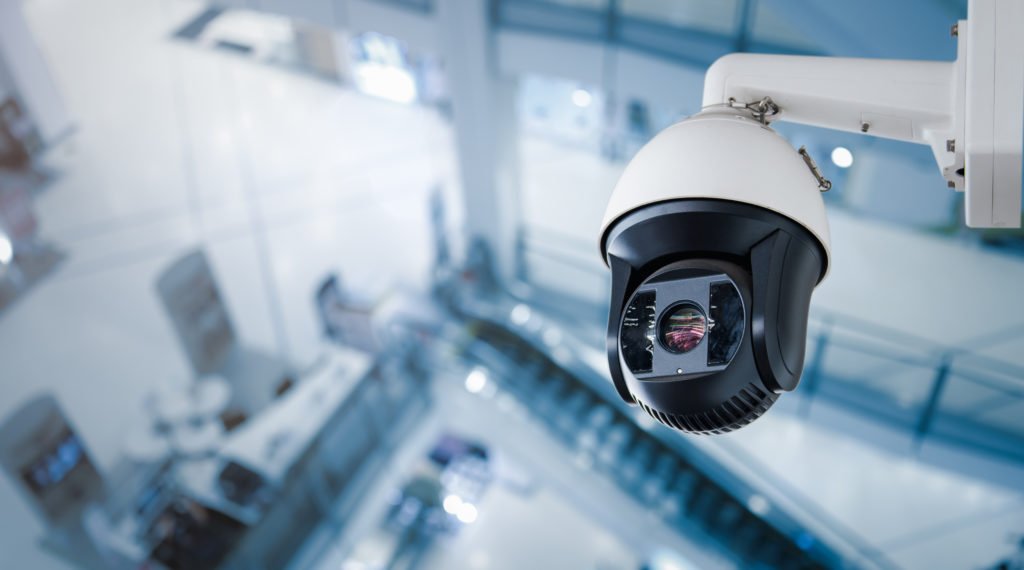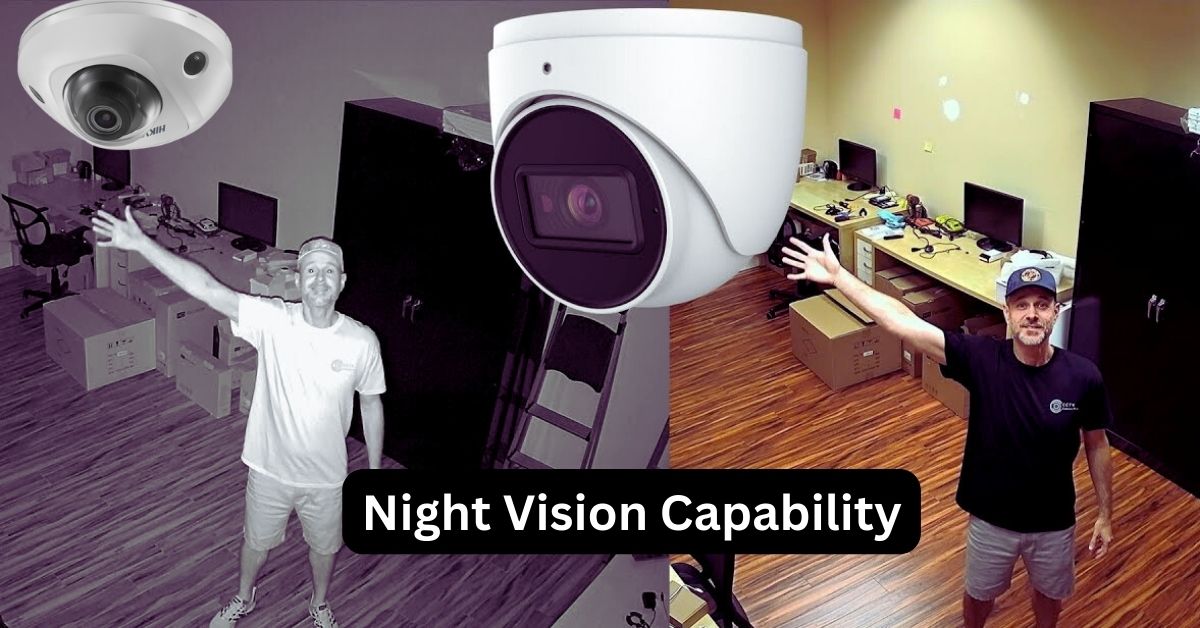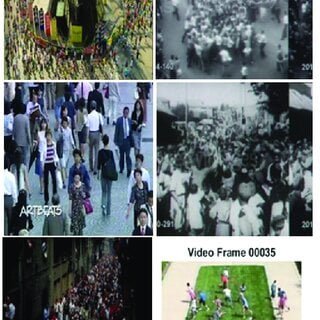CCTV camera for your home or business
Installing a CCTV camera system for your home or business is a proactive step towards bolstering your security and ensuring the safety of your loved ones and property.
With advancements in technology, CCTV cameras have become more accessible, affordable, and feature-rich, making them a popular choice for homeowners seeking peace of mind and protection against potential threats. Here’s a guide to help you choose the right CCTV camera for your home:
Selection of CCTV Cameras for Home and Business Security
In a progressively connected world, safeguarding the protection and security of our homes and businesses is of supreme importance. One influential tool that can benefit from this attempt is the Closed-Circuit Television (CCTV) camera structure. CCTV cameras provide real-time monitoring, deter potential intruders, and offer valuable evidence in case of criminal activities. However, with a wide variety of CCTV cameras accessible in the market, selecting the right one can be an intimidating task. In this ample guide, we will walk you through the critical factors to consider when choosing a CCTV camera for your home or professional setup.
Determine Your Surveillance Needs for the selection of a CCTV camera
Before diving into the world of CCTV cameras, it is crucial to determine your specific surveillance needs. Start by identifying the areas you want to monitor and the purpose of the surveillance. Are you primarily concerned about securing the perimeter of your property, or do you need cameras to monitor specific indoor areas? Selecting a CCTV camera for your home, consideration of your necessities will help you specify the category and quantity of CCTV cameras you require.

4MP Smart Hybrid Light with Color Vu Fixed Turret Network Camera
⦁ High-quality imaging with 4 MP resolution
⦁ Smart Dual-Light: advanced technology with long range
⦁ Clear imaging against strong backlight due to 130 dB WDR technology
⦁ Efficient H.265+ compression technology
⦁ Focus on human and vehicle classification based on deep learning
⦁ -U: Built-in microphone for real-time audio security
⦁ Water and dust resistant (IP67)
Types of CCTV Cameras to be considered while their selection
There are several types of CCTV camera s for your home available, each designed for different surveillance purposes. Let’s explore some of the most common types:
Dome Cameras:
Dome cameras are categorized by their dome-shaped casing, which makes it problematic for invaders to determine the way the camera is facing. These cameras are multipurpose and can be used for both indoor and outdoor observation. Dome cameras are an excellent choice when you want to maintain a discreet presence.
Bullet Cameras:
Bullet cameras are cylindrical and are typically used for outdoor surveillance. They are recognized for their long-range competencies and are often used to display large areas such as space lots or plots. Bullet cameras are visible and can act as a deterrent due to their prominent presence.
PTZ Cameras:
PTZ stands for Pan-Tilt-Zoom, and these cameras suggest the aptitude to pan, tilt, and increase in specific areas of concentration. They are remotely controlled and provide excellent coverage for large areas. PTZ cameras are commonly used in areas that require active monitoring, such as shopping malls or parking garages.

Thermal Cameras:
Thermal cameras use heat signatures to detect movement and are particularly effective in low-light or nighttime conditions. They are commonly used in areas where traditional cameras may struggle, such as industrial sites or perimeter surveillance.
Consideration of CCTV Camera Resolution and Image Quality while selection
When selecting a CCTV camera, it is central to reflect the camera’s resolution and image excellence. Resolution denotes the number of pixels a camera can imprisonment, and it directly touches the level of detail in the footage. Higher-resolution cameras produce clearer and more detailed images. Shared resolutions for CCTV cameras comprise 720p, 1080p (Full HD), and 4K (Ultra HD). Select a resolution that suits your surveillance needs while considering factors such as storage space and bandwidth requirements.
Selection of CCTV cameras based on Day/Night Vision Capabilities
To ensure round-the-clock surveillance, it is essential to consider a camera’s day/night vision capabilities. Cameras equipped with infrared (IR) LEDs can capture clear images even in complete darkness. Look for cameras with a good range of IR illumination to cover the desired monitoring areas effectively.

CCTV camera Placement and Field of View consideration while selection
Proper camera placement is crucial to maximize the effectiveness of your CCTV camera for your home. Consider the field of view (FOV) of the camera, which determines the area the camera can cover. Wide-angle lenses offer a broader FOV, while narrow lenses provide a more focused view. Evaluate your surveillance needs and select cameras with appropriate lenses and adjustable angles to capture the desired areas effectively.
Wired vs. Wireless CCTV Cameras are under consideration while the selection
Another factor to consider is whether to opt for wired or wireless CCTV cameras. Wired cameras require physical connections to power and transmit video signals, while wireless cameras operate over Wi-Fi or cellular networks.
Wired cameras offer a more reliable and stable connection, as they are not subject to interference or signal loss. They are suitable for installations where power outlets and wiring infrastructure are readily available.
On the other hand, wireless cameras provide flexibility in terms of installation and can be easily relocated if needed. However, they may be susceptible to signal interference or bandwidth limitations, depending on the distance from the router.
Consider your specific requirements and the infrastructure available at your home or business premises when deciding between wired and wireless cameras. You can Select any CCTV camera for your home
CCTV Camera Features and Additional Considerations when Selecting
Weather Resistance:
If you plan to install cameras outdoors, ensure they are weatherproof and capable of withstanding various environmental conditions. Look for cameras with an IP (Ingress Protection) rating to determine their resistance to dust and water.
Video Storage:
Determine how you want to store your surveillance footage. A CCTV camera for your home systems typically offers options such as local storage (on a DVR or NVR), cloud storage, or a combination of both. Consider the storage capacity and accessibility options that best suit your needs.
Remote Access and Mobile App Integration:
Many modern CCTV systems allow remote access, enabling you to monitor your premises from anywhere using a computer, smartphone, or tablet. Check if the camera system offers a mobile app with user-friendly features for convenient monitoring on the go.
Analytics and Motion Detection:
Some advanced CCTV cameras come with built-in analytics capabilities, including motion detection. These features can reduce false alarms by only triggering recordings and alerts when specific motion patterns or events occur.

Assimilation with Standing Security Systems:
If you have a standing security system, such as an alarm or access control system, consider a CCTV camera for your home that can assimilate effortlessly with these arrangements. This integration allows for centralized monitoring and streamlined security operations.
Budget Considerations for the Selection of CCTV Cameras
While it’s significant to devote to a high-excellence CCTV camera system, it’s similarly crucial to ponder your budget. Determine the number of cameras you need and allocate a reasonable budget for your surveillance requirements. Research different brands and models, compare prices, and read customer reviews to find a balance between affordability and quality
Professional Installation vs. DIY after the Selection of CCTV Camera
Lastly, decide whether you want to hire an expert to install your CCTV camera for your home or if you prefer a DIY method. Professional installation ensures proper camera placement, optimal configuration, and integration with other security systems. However, if you have the technical expertise and confidence, a DIY installation can save costs. Keep in mind that DIY installations may require more effort and time to set up correctly.
Conclusion
Choosing the right CCTV camera for your home or business involves understanding your surveillance needs, considering camera types, resolution, day/night vision capabilities, camera placement, wired or wireless options, and additional features. Take into account factors such as weather resistance, video storage, remote access, analytics, integration with existing systems, and budget considerations.
By cautiously appraising these factors and leading thorough research, you can opt for a CCTV camera system that offers the level of safety and peace of mind you want. Remember, investing in a reliable and effective CCTV camera system is an investment in the safety and protection of your property and those within it.
Choosing the right CCTV camera for your home is a critical decision that requires careful consideration and evaluation of various factors. An all-inclusive guide is vital to help individuals and businesses make a knowledgeable choice that brings into line with their specific security requirements. By understanding the key aspects discussed in this guide, such as camera types, resolution, lens, low light performance, storage options, connectivity, and additional features, one can navigate the market effectively and select a CCTV camera for your home that offers optimal surveillance capabilities.
Camera types play a significant role in determining the suitability of a CCTV camera for your home for a particular setting. Whether it’s dome, bullet, PTZ, or wireless cameras, each type has its advantages and limitations. Considering factors like mounting options, visibility, and coverage requirements can aid in selecting the most appropriate camera type.
Resolution is another crucial aspect that influences the clarity and detail of surveillance footage. Higher determination cameras, such as those with 4K or even 8K resolutions, display greater image quality, consenting for better identification of entities or objects. Though, it’s important to strike an equilibrium between resolution and storage necessities, as higher resolutions can engage more storage space
The lens of a CCTV camera for your home determines the field of view, zoom capabilities, and image quality. Vari focal lenses provide flexibility in adjusting the zoom and focal length, while fixed lenses offer a consistent field of view. Evaluating the lens specifications and understanding the viewing requirements help in selecting the right CCTV camera for your home
Low light performance is critical for surveillance cameras, especially in areas with limited lighting conditions during nighttime or indoors. Cameras equipped with infrared (IR) illuminators or low-light sensors can capture clear images even in challenging lighting environments. Considering the lux rating and IR range of a camera can ensure effective surveillance around the clock.
Storage options for CCTV camera for your home include local storage through onboard SD cards or external hard drives, as well as cloud-based storage solutions. Assessing the storage requirements, budget, and data retention needs can guide users in choosing the most suitable storage option for their surveillance system.
Connectivity features, such as wired or wireless connections, determine the ease of installation and integration with existing networks. Wireless cameras offer flexibility and easy installation, while wired cameras provide a stable and reliable connection. Understanding the networking capabilities and infrastructure requirements is essential for seamless integration and remote monitoring.
Lastly, additional features like motion detection, facial recognition, and audio capabilities enhance the overall functionality and efficiency of CCTV cameras. These features can be valuable in specific scenarios, such as monitoring restricted areas or capturing audio evidence. Evaluating the necessity and compatibility of these additional features is crucial to selecting the right CCTV camera system.
Choosing the right CCTV camera for your home involves a comprehensive evaluation of multiple factors to ensure effective surveillance and security. It requires considering camera types, resolution, lens, low light performance, storage options, connectivity, and additional features. By understanding these aspects and matching them to the specific requirements of the surveillance environment, individuals and businesses can make informed decisions and invest in a CCTV camera for your home that meets their security needs effectively.
With the rapid advancements in technology and the increasing availability of diverse CCTV camera options, staying updated and conducting thorough research is crucial to making the right choice. By following this comprehensive guide, individuals and businesses can enhance their security measures and create a safer environment for themselves, their assets, and their loved ones.
FAQs
Q: Which CCTV camera is best for the industry?
The best CCTV camera for your home and industry depends on various factors, including the specific needs and requirements of your business.
Consider factors like the size of the area to be monitored, lighting conditions, desired resolution, and any special features needed. High-resolution IP cameras with advanced analytics capabilities are often preferred for industrial settings due to their ability to cover large areas and provide valuable insights.
Q: How to choose a security camera system for a business?
Choosing a CCTV camera for your home or business requires careful consideration. Start by conducting a thorough risk assessment to identify vulnerable areas.
Then, determine the required camera types (e.g., dome, bullet, PTZ) and the desired resolution. Consider whether you need features like night vision, motion detection, and remote access. Lastly, ensure the chosen system is scalable and compatible with your existing security infrastructure.
Q: What features should I look for in a security camera?
When selecting a security camera, look for the following key features:
- Resolution: Higher-resolution cameras provide clearer and more detailed images.
- Night Vision: Essential for 24/7 surveillance, enabling the camera to capture clear footage in low-light or complete darkness.
- Motion Detection: Cameras with motion detection can send alerts when movement is detected, reducing false alarms.
- Remote Access: Allows you to view camera feeds and control the system remotely using a smartphone or computer.
- Wide Dynamic Range (WDR): WDR technology balances light and dark areas, ensuring clear images in challenging lighting conditions.
- Pan-Tilt-Zoom (PTZ): PTZ cameras can be remotely controlled to pan, tilt, and zoom, providing flexibility in monitoring large areas.
- Weather Resistance: For outdoor installations, cameras with weather-resistant or vandal-proof housing are crucial to withstand harsh conditions.
Q: Which is better, wireless or wired CCTV?
The choice between wireless and wired CCTV depends on the specific requirements of your surveillance setup. Wireless cameras offer easier installation and flexibility in camera placement but require a stable Wi-Fi network and may experience interference.
On the other hand, wired cameras provide a more reliable and secure connection but involve more complex installation and cable management.
Q: Which is better, NVR or DVR?
CCTV camera for your home, The decision between Network Video Recorder (NVR) and Digital Video Recorder (DVR) depends on the camera type. NVRs are compatible with IP cameras, while DVRs work with analog cameras.
Generally, NVRs offer higher resolution and more advanced features for IP camera systems. However, if you have existing analog cameras and don’t plan to upgrade to IP cameras, a DVR may still be a viable option.
When choosing your CCTV camera system, consider your specific business needs, the environment where the cameras will be installed, and the desired level of security and surveillance. By understanding these factors and exploring the available features, you can make an informed decision to protect your business effectively.

